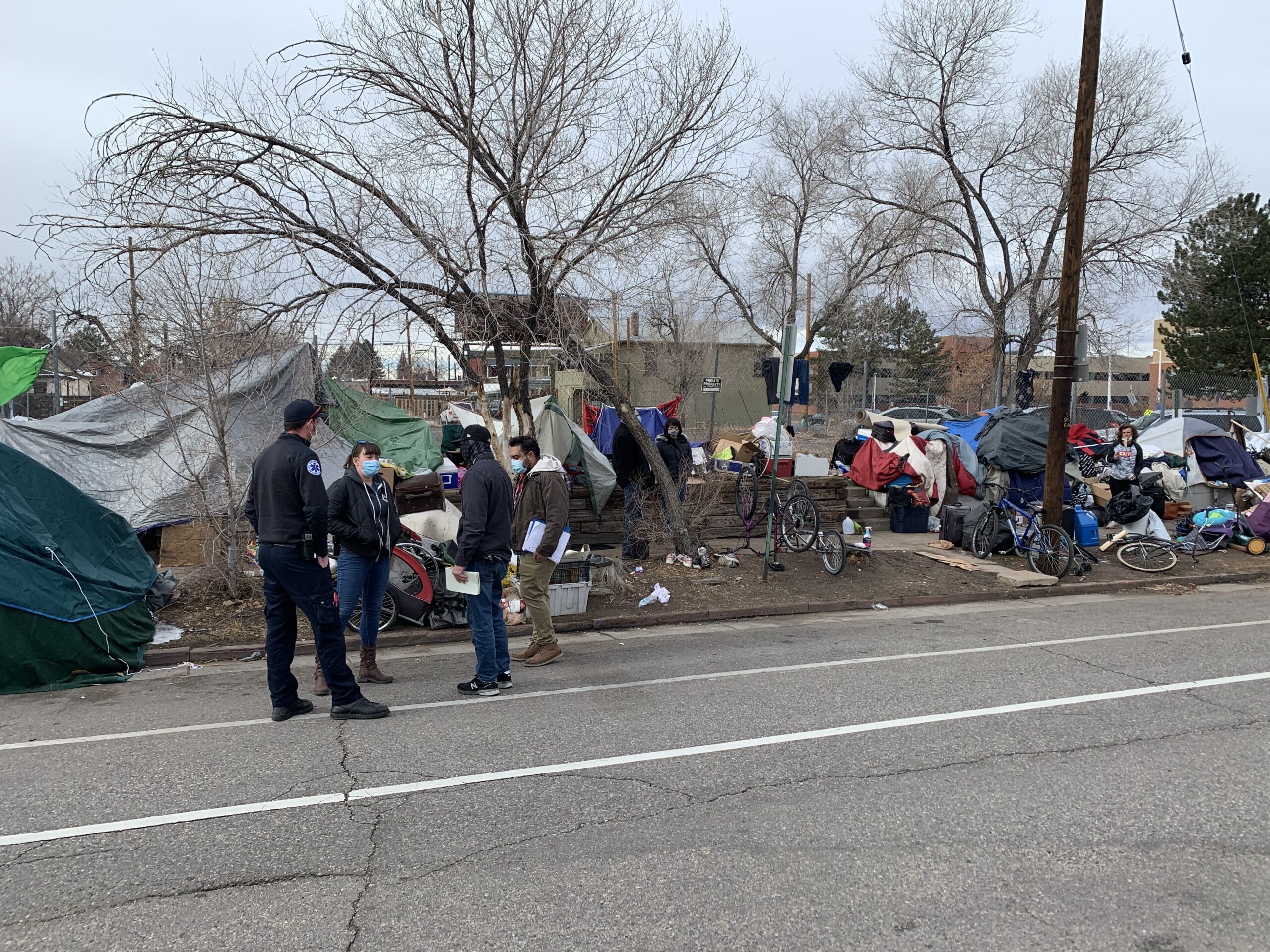
The Denver metro area has at least 85 different organizations that help serve people experiencing or exiting homelessness, an analysis from the Common Sense Institute (CSI) found.
The analysis, released on Monday, marks the second phase of the free market think tank’s deep-dive into the systemic factors that impact homelessness in metro Denver.
Phase two “seeks to understand, and visualize, the ecosystem of factors that contribute to furthering homelessness as well as those factors that contribute to the prevention of homelessness or supporting those experiencing homelessness to move into stable housing,” according to the analysis.
In phase one, researchers found that nearly half a billion dollars is spent annually on homeless services in the metro area.
CSI developed the analysis in partnership with the University of Colorado Denver’s InWorks initiative, a center that focuses on “[allowing] people to collaboratively create impactful solutions to human problems,” according to its website.
“There are a variety of programs doing impactful work in meeting the different needs of people experiencing homelessness,” CSI CEO Kristin Strohm said in a statement. “Our goal with this phase was to document what’s working, where there are opportunities, where there might be gaps, and ultimately learn from them to solve this crisis.”
Of the 85 existing organizations, 86% are dedicated to food and resource aggregation or providing housing, while just 3% of organizations provide mental health and substance misuse treatments. Another 3% of organizations are considered “advocacy” groups under the report.
After mapping the locations of the identified service organizations, the analysis found that a majority of housing and resource services exist in Denver, Adams, and Boulder counties. Douglas County had no identifiable service organizations, while Jefferson and Arapahoe counties had just one each.
The analysis then developed an “influence map” which included over 100 topics divided into eight categories to identify places where service systems need more support. It then offers ways that each system might be improved to better serve people experiencing homelessness in metro Denver.
For example, the analysis recommends that Denver implement “warrant clustering” – the practice of adjudicating multiple cases with one arrest – to cut down on the number of people locked up in jail for failing to appear, or other minor crimes associated with poverty and homelessness.
Another way Denver could bolster its homeless support systems is by expanding work opportunities for people either experiencing or exiting homelessness, according to the analysis. An example includes Denver’s Bridge House, which offers day work opportunities.
Denver residents will vote on Initiative 303 next month, which would require the city and county to crack down on unauthorized camping and provide “a process for private enforcement if the City fails to enforce unauthorized camping.” The measure is being opposed by Denver City Council.
The city has faced several lawsuits over its management of homeless encampments in recent years.
This article was originally posted on Denver metro has 85 organizations serving the homelessness, think tank analysis finds